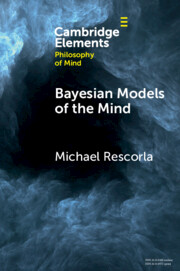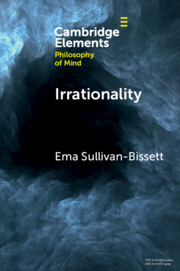Two books, surely of interest to some of us, are currently open source — free to download — until 24th/27th February 2025:
 Rescorla, Michael. Bayesian Models of the Mind. Cambridge University Press, 2025. https://doi.org/10.1017/9781108955973.
Rescorla, Michael. Bayesian Models of the Mind. Cambridge University Press, 2025. https://doi.org/10.1017/9781108955973.
Abstract: Bayesian decision theory is a mathematical framework that models reasoning and decision-making under uncertain conditions. The Bayesian paradigm originated as a theory of how people should operate, not a theory of how they actually operate. Nevertheless, cognitive scientists increasingly use it to describe the actual workings of the human mind. Over the past few decades, cognitive science has produced impressive Bayesian models of mental activity. The models postulate that certain mental processes conform, or approximately conform, to Bayesian norms. Bayesian models offered within cognitive science have illuminated numerous mental phenomena, such as perception, motor control, and navigation. This Element provides a self-contained introduction to the foundations of Bayesian cognitive science. It then explores what we can learn about the mind from Bayesian models offered by cognitive scientists.
 Sullivan-Bissett, Ema. Irrationality. Cambridge University Press, 2025. https://doi.org/10.1017/9781009641883.
Sullivan-Bissett, Ema. Irrationality. Cambridge University Press, 2025. https://doi.org/10.1017/9781009641883.
Abstract: This Element surveys contemporary philosophical and psychological work on various forms of irrationality: akrasia, strange beliefs, and implicit bias. It takes up several questions in an effort to better illuminate these more maligned aspects of human behaviour and cognition: what is rationality? Why is it irrational to act against one’s better judgement? Could it ever be rational to do so? What’s going wrong with beliefs in conspiracy theories, those arising from self-deception, or those which are classed as delusional? Might some of them in fact be appropriate responses to evidence? Are implicit biases irrational when they conflict with our avowed beliefs? Or might they be rational insofar as they track social realities?
